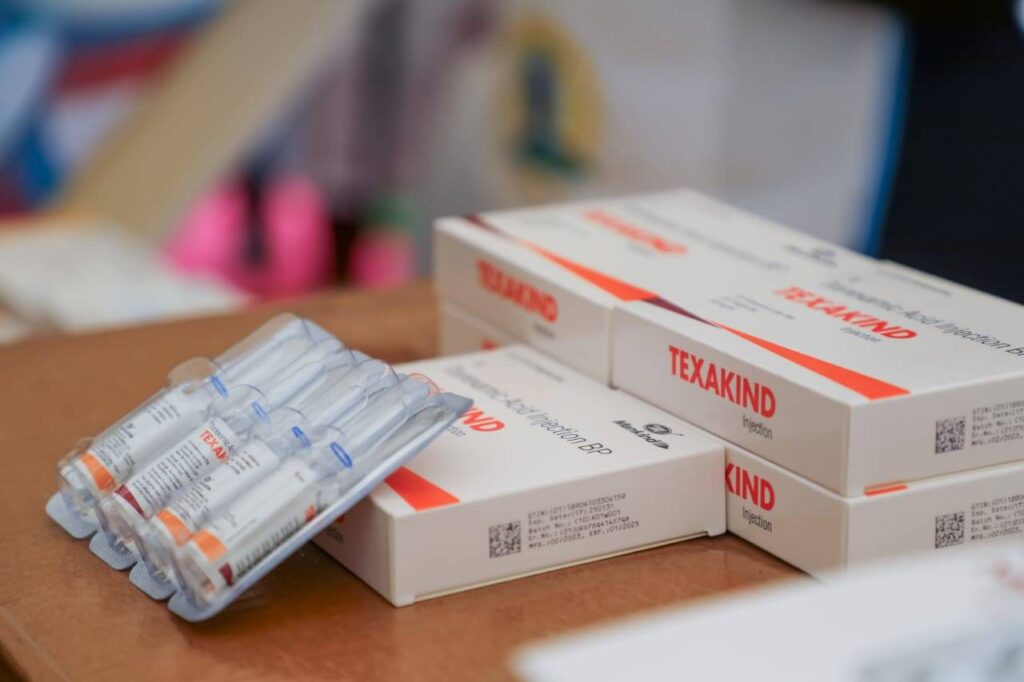The government of Kenya has procured 360,000 doses of a new formulation of a drug that prevents excessive bleeding following childbirth, a consignment that will arrive in the country in March.
The medicine, Heat Stable Carbetocin, does not require refrigeration. It is also still effective for at least three years stored at 30 degrees Celsius and 75% relative humidity.
Dr Edward Serem, the Head of Division of Reproductive and Maternal Health – Ministry of Health, said that Heat Stable Carbetocin will be used along with Oxytocin, which is the country’s first-choice drug for preventing excessive bleeding after childbirth.
However, Dr Serem said, oxytocin must be stored and transported at between 2 and 8 degrees Celsius.
“Not many regions in Kenya can sustain these levels of refrigeration, and that means when the women get the medicine for preventing the bleeding, it has completely lost its potency because of exposure to higher temperatures,” Dr Serem said.
Heat Stable Carbetocin is also effective due to a longer duration of action of the uterus.
Excessive bleeding after child birth
Postpartum haemorrhage (PPH), in which women bleed uncontrollably after childbirth, is the deadliest of all complications during childbirth.
A 2017 investigation into all the deaths of mothers by the Ministry of Health showed that PPH is responsible for 2 in every 5 women who die in Kenya during and after childbirth in Kenya.
Failure of the uterus to contract adequately after childbirth is the most common cause of postpartum haemorrhage.
Michael Mwiti, a midwife and maternal health specialist from the Johns Hopkins affiliate, Jhpiego, said: “Administration of medicines within one minute of childbirth is one of the most critical steps in preventing excessive bleeding after childbirth. Use of quality assured medicines is the gamechanger.”
When the woman does not die, the complication may force doctors to perform emergency hysterectomies (removing the uterus), especially when hospitals have too little blood on hand to provide transfusions.
The government is including the medicine as one of the options following Kenya’s participation in the world’s largest clinical trial called Carbetocin Haemorrhage Prevention, known to many as the CHAMPION Trial The study tested the effectiveness of the medicine alongside Oxytocin on 30,000 women who gave birth vaginally in Argentina, Egypt, India, Kenya, Nigeria, Singapore, South Africa, Thailand, Uganda, and the United Kingdom.
Report on HPP
The results published in the New England Journal of Medicine showed it to be safe and effective just as oxytocin, which Kenya has used all along. The Ministry of Health has also tested the medicine in 11 counties in Kenya.
Maternal mortality remains high in Kenya, placing it in the “very high” category of the World Health Organisation. While lack of medication was one of the causes of excessive bleeding remained stubbornly high, the Ministry of Health’s 2017 report indicated that “91% of women who died received suboptimal care, where different management would have resulted in a different outcome”.
The report further highlighted that the suboptimal care was due to inconsistent treatment practices that do not adhere to the guidelines, lack of equipment, poor referral system and understaffed hospitals.
In response to the arrival of the medicine, the government solicited support from multiple development partners and donors to train healthcare workers on the appropriate use of the medicine.
The project Smile for Mothers trained more than 1400 healthcare workers in 40 public health facilities in ten counties with stubbornly high levels of post-partum haemorrhage: Kilifi, Garissa, Kitui, Tharaka Nithi, Kiambu, Nairobi, Nakuru, Kakamega, Kisumu, and Migori.
UNITAID-backed project Accelerating Measurable Progress and Leveraging Investments for Postpartum Haemorrhage Impact—AMPLIPPHI, pronounced Amplify— tested the integration of medicine in a health system in Makueni County.
Article by Jhpiego












